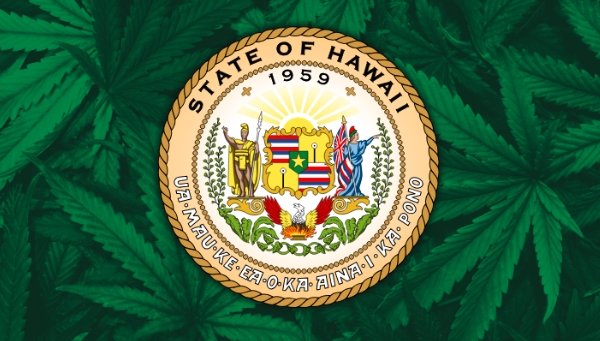Hawaii is on the verge of becoming the latest state to legalize recreational cannabis and expunge the records of thousands of people who were arrested for possessing small amounts of the plant.
Senate Approves Legalization Bill
On March 5th, 2024, the Hawaii Senate passed Senate Bill 3335, which would create a regulated market for adult-use cannabis in the Aloha State. The bill would allow people 21 years and older to possess up to one ounce of cannabis and grow up to six plants at home, starting from 2026. The bill would also establish the Hawaii Hemp and Cannabis Authority, which would be responsible for issuing licenses and overseeing the industry. The bill would also create a Cannabis Control Board, which would advise the authority on various aspects of the market.
The bill now moves to the House of Representatives, where it faces some opposition and challenges. Some lawmakers and advocates have raised concerns about the details of the bill, such as the THC limit for drivers and the possession of loose cannabis inside a vehicle. They argue that these provisions are too restrictive and could undermine the purpose of legalization.
House Passes Expungement Bill
In addition to the legalization bill, the Hawaii House of Representatives passed House Bill 1595, which would initiate a state-led process of expunging the records of people who were arrested or convicted for possessing less than three grams of cannabis. This offense was decriminalized in Hawaii in 2019, but many people still carry the stigma and consequences of having a criminal record. The expungement process would begin in 2026 and affect over 36,000 individuals.

The bill aims to ease the burden on those who are eligible for expungement, as the current law requires them to petition the courts and pay fees to clear their records. Many people are either unaware of their eligibility or unable to navigate the legal system on their own. The bill would automate the expungement process and make it free of charge for those who qualify.
The bill has received support from various groups, including NORML, an organization that advocates for reforming cannabis laws. Paul Armentano, the deputy director of NORML, testified in favor of the bill, saying that it would provide legal relief to thousands of people who have been disproportionately impacted by the criminalization of cannabis. The bill now heads to the Senate for further consideration.
Implications and Reactions
If both bills become law, Hawaii would join the growing number of states that have legalized and expunged cannabis in recent years. According to the Marijuana Policy Project, a nonprofit that works to end cannabis prohibition, 15 states and the District of Columbia have legalized recreational cannabis, and 26 states have enacted laws to expunge or seal cannabis records. These reforms are driven by the recognition of the medical, economic, and social benefits of cannabis, as well as the racial and social injustices of the war on drugs.
The legalization and expungement bills have received mixed reactions from the public and the media. Some people have expressed their support and excitement for the potential changes, while others have voiced their concerns and skepticism about the possible risks and challenges. Here are some examples of the opinions and comments from different sources:
- “I think it’s about time. Cannabis is safer than alcohol and tobacco, and it has many health benefits. It also creates jobs and tax revenue for the state. I hope the House passes the legalization bill and the governor signs it.” – A cannabis user and advocate from Honolulu.
- “I’m worried about the impact of legalization on public safety and health. Cannabis impairs driving and cognitive abilities, and it can lead to addiction and mental health problems. I think the Senate bill is too lenient and does not address these issues adequately.” – A law enforcement officer and opponent from Maui.
- “I’m glad that the House passed the expungement bill. I was arrested for having a joint in my pocket when I was 18, and it ruined my chances of getting a job and a scholarship. I’ve been trying to get my record cleared for years, but it’s too expensive and complicated. This bill would give me a second chance.” – A person with a cannabis conviction from Kauai.
- “I don’t think the expungement bill is fair or necessary. People who broke the law should face the consequences and not get a free pass. Expunging their records would send the wrong message and encourage more drug use. The law should not change retroactively.” – A conservative commentator and critic from Hawaii Island.



